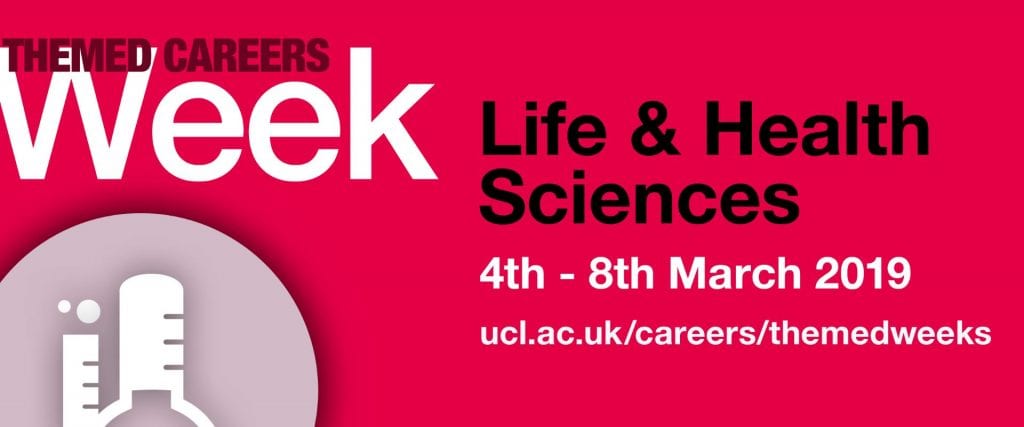Getting started as a translator
By UCL Careers, on 5 June 2019
Katie Hill | Translator, French and Greek to English, at Translation Pod
Visit Katie’s LinkedIn profile
Everything you need to know about getting started as a translator
My name is Katie and I’ve been working as a freelance translator since 2011, after a brief stint in ad sales. I mainly specialise in marketing translation from French and Greek to English. I also offer subtitling and copywriting services to a variety of international clients, including Netflix, Sephora and Watsons (the Asian equivalent of Boots).
One of the things I love most about my job is the range of different projects I get to work on. I might be translating a brochure for a French architect one day and subtitling Greek corporate videos the next.
Some of my projects last for weeks (like subtitling TV series or translating children’s books), while others are short and have to be delivered on the same day (like press releases, websites and magazine articles).
Warning: this isn’t a standard nine-to-five job, and if you like having a routine, it might not be the career for you! But if you’re curious about different industries and want to use your language skills on a daily basis, I can pretty much guarantee you’ll never look back.
How do you get started?
The translation industry can be quite competitive, especially for popular language combinations like French or Spanish to English. It’s also tough to break into when you don’t have any experience. So, how do you get started?
Firstly, think about the type of translation you enjoy doing and research companies and organisations that might need your services. How specialised you are is entirely up to you.
There is an argument for focusing on a particular field, so you can develop your knowledge and become an expert. On the other hand, working in different areas helps to diversify your income and stops you becoming too niche. It depends on the volume of work you get, but also on what you find most enjoyable.
Once you’ve decided, I would recommend contacting someone who is already working in the field you’re interested in. This is something I did when I first went freelance and it was incredibly useful for getting practical advice. It was also helpful to get feedback on my translations from someone more experienced.
You can search for people online (through platforms like UCL Alumni Online Community, LinkedIn, and Twitter) and also sign up for mentorships like the IOL mentoring scheme.
How do you find jobs?
There are several ways to do this: you can set up profiles online (linguist directories through the Chartered Institute of Linguists and the Institute of Translation and Interpreting are a good place to start), sign up with translation agencies or contact potential clients directly.
Make sure you send your CV to the right person at the company or agency you want to work for (vendor managers, talent managers, content managers, editors, people who are responsible for communications and publications etc.).
There are also specialist websites like ProZ, Translators Base and Translators Café, which can be useful early in your career. The translation jobs advertised on these websites offer comparatively low rates, but it’s a great way to get started. You can also find a list of translation agencies to apply to.
What skills do you need?
- Language skills (understanding the source text is vital, but also being able to conduct business in your second or third language – most of my communications with clients in France are in French, for example)
- A flair for writing and confidence writing in different styles (persuasive, informative, authoritative)
- Curiosity and good research skills
- Time management (you have to be comfortable working to tight deadlines)
- Technical skills (particularly for subtitling, but also for translation software)
- The ability to be objective about your work
- An understanding of different approaches to translation
Whichever specialism you choose, you’ll need to use CAT tools (Trados, MemoQ, Wordfast etc.) for commercial translation. Translation agencies often require them so they’re a useful investment.
You can download trial versions and sign up for free training online. You can also get hold of software at a discounted rate through Translator Group Buys on ProZ.
Do you need any specific qualifications?
My MA in Translation has been invaluable, not just in terms of developing my practical skills but also in shaping the way I think about translation and giving me the confidence to turn it into a profession. Aside from the knowledge and skills you gain, a postgraduate degree or a professional qualification like the Diploma in Translation (DipTrans) gives you credibility and makes it more likely that someone will hire you.
However, you can develop the required language and translation skills through living abroad, and you can always gain qualifications later in your career. If you have a BA in languages or you’ve mastered a second language by living in another country, you have the skills necessary to start work as a translator.
How do you stand out from the crowd?
Specialist knowledge and additional skills will definitely give you the edge, like copywriting, editing, search engine optimisation (SEO), desktop publishing (DTP), content management systems (CMS), film editing, voiceover, coding and software development, campaign management and social media expertise…
If you’ve picked up any relevant skills through jobs or volunteer work, make sure you highlight these on your CV and online profiles. It may even be worth investing in some professional training (I’ve taken courses in copywriting and SEO).
More unusual language pairs will also get you noticed (I get contacted most often about translations from Greek, for example).
Finally…
It took me a long time to establish myself as a translator – much longer than I thought! If you struggle to find work in the beginning or things don’t quite go to plan, don’t be disheartened. It’s all part of the process and every experience (good and bad!) will contribute to your future success as a translator.
 Close
Close






